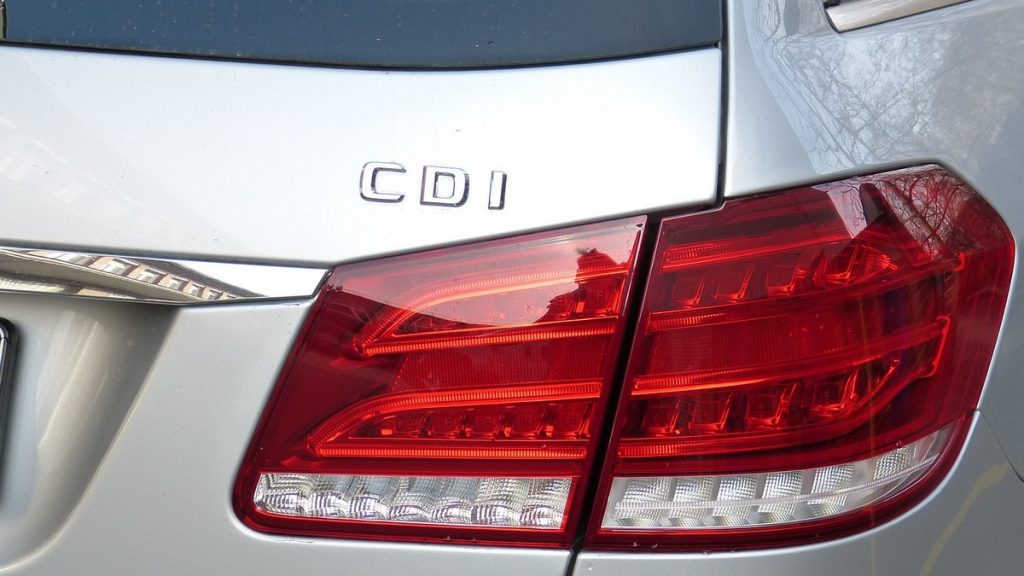In this two-part post, we take a look at the environmental controversy over diesel cars and ask if buying one is right for our health and for the planet.

Diesel vs petrol: it’s not all about you
Not so long ago, fuel type and ethics never appeared in the same sentence. You bought a diesel car for better fuel economy or bags of torque. If you liked high-revving fun and quieter running, you went for a petrol model. Or perhaps for other reasons connected with practicality, economy, driving style and image. One thing’s certain though: diesel vs petrol wasn’t an ethical choice.
But in recent years, things have changed. Fuel choice is suddenly controversial. Diesel has come under the spotlight, first as a planet-preserving angel and then as a health-destroying demon. What should the concerned motorist do?
We understand — the temptation is just to throw your hands up in the air and say that scientists and politicians are always changing their mind. And that your choice won’t make any difference anyway. Or perhaps do a Jeremy Clarkson and trivialise the whole issue. But in our view, as car owners, or even enthusiasts, we can do a bit better than that.
We think that as responsible drivers (and people!), the least we can do is take a look at both sides of the diesel debate. And with that in mind, off we go.
The case against diesel
Unless you’ve been living under a stone, you’ll know that diesel stands accused of causing a range of serious health problems. As a result of this, governments are putting a range of measures together to restrict where diesel vehicles can be used, to make them less economically viable or to incentivise changing to other fuel types.
We’d love to tell you that this is all based on cooked-up nonsense, and that the health risks of diesel emissions are exaggerated. Unfortunately, that’s not what the evidence says.
Concern about the health effects of diesel emissions grew steadily over the 2000s, as study after study pointed to the damaging effects of its components. A turning point was a 2012 report by the World Health Organisation, which classified diesel exhaust as a group 1 carcinogen. Diesel emissions, the report revealed, cause lung cancer. There’s also an association with bladder cancer. The report identified two key groups of compounds that were particularly damaging: particulate matter (PM) and nitrogen oxides (NOx).
Particulate Matter, or soot, results from incompletely burned diesel fuel. It contains hundreds of compounds, including poisonous heavy metals. The smallest particles of soot, ultrafine particulates, can penetrate lung cells where they not only cause cancer but contribute to respiratory and cardiovascular illnesses. Children, the elderly, and those with existing respiratory conditions are especially vulnerable.
Nitrogen oxides can be harmful directly, but also through the formation of ground level ozone. Like PMs, ozone contributes to a host of respiratory problems, including asthma.
Estimates of the number of deaths attributable to diesel emissions vary, but they all make for grim reading. The European Environment Agency concluded that NOx from diesel emissions was responsible for roughly 71,000 premature deaths across Europe. That’s in one year. The same report estimated that in the UK, roughly 12,000 people a year in the UK die prematurely from diesel-related NOx.
Statistics like these have prompted both national and municipal governments to take action. Critics have argued that diesel is being unfairly scapegoated. They point to other sources of NOx and PMs, such as public transport and solid fuel domestic heating. It’s certainly true that there are other sources of pollution, but there’s no getting round the fact that diesels do make a substantial contribution to health-damaging emissions.
Old and dirty, new and clean?
So far it looks pretty damning for diesel. However, many would argue that these problems have now been addressed. Modern diesels, it’s claimed, are as clean as petrol cars. In Part Two, we’ll look at this argument, as well as the issue of diesel and climate change. Stay tuned!
